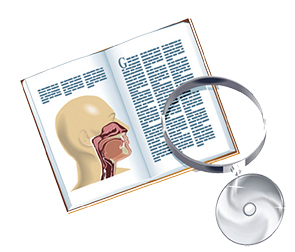Explore This Issue
May 2014
Background
Vocal fold polyps are benign nonneoplastic lesions thought to occur as a result of vocal abuse, misuse, or overuse. Similar to vocal fold nodules and cysts, these lesions result in significant disability, especially among those who require voice for their vocation. Current treatment includes conservative (i.e., nonsurgical) and surgical approaches. Most laryngologists agree that conservative voice therapy is an effective first-line approach for vocal fold nodules. However, no consensus exists regarding vocal fold polyps. In fact, a 2003 survey of members of the American Academy of Otolaryngology–Head & Neck Surgery found that only 30% of respondents recommended voice therapy as the initial treatment for polyps. Variation in treatment is perpetuated by either lack of data or its dissemination. As such, it is important to review the evidence surrounding the effectiveness of conservative management at improving voice quality in patients with vocal fold polyps.
Best Practice
From a clinical standpoint, it is not a question of whether voice therapy or surgical management offers the best outcome, but whether a conservative approach can offer sufficient improvement to eliminate the inherent risks of surgery. Based on the observational studies described earlier, conservative approaches can be used with success in patients with vocal fold polyps. As expected, smaller lesions tend to be most responsive to vocal hygiene measures with or without voice therapy. Surgery remains a viable initial option for those with larger polyps and in those who require a rapid definitive approach. Nonetheless, the shared decision-making process should always include counseling regarding the potentially curative role of conservative therapy. Read the full article in the The Laryngoscope.
Leave a Reply